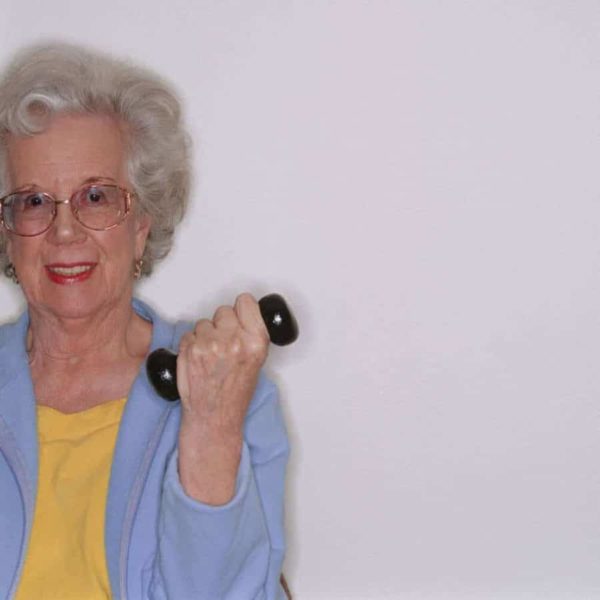Studies often show that older adults find cognitive benefit from exercise, but a new study by University of Florida Health researchers and their colleagues has found that frail older adults gain no such benefit from moderate physical activity.
The researchers drew their data for this study, published today (Aug. 25) in the Journal of the American Medical Association, from the Lifestyle Interventions and Independence for Elders study. The LIFE study randomly divided more than 1,600 participants between the ages of 70 to 89 into two groups: those who exercised and those who received health education. The participants had not previously exercised, and though they had to be able to walk a quarter of a mile within 15 minutes, they were at risk of losing that ability. In this study, researchers used data from 1,476 of the participants.
Neither the participants in the physical activity group nor the health education group had improvements in their global cognitive function or in the function of the parts of the brain that perform certain tasks.
“We had hoped that physical activity would benefit the whole group, but it didn’t,” said University of Florida’s Institute on Aging director Marco Pahor, M.D., a co-author of the current study and principal investigator of the LIFE study.
Pahor pointed to previous studies that have shown that older adults gain cognitive benefits from exercising. However, this benefit may result from a higher level of physical activity than the LIFE participants engaged in. Intense aerobic training improves the brain’s ability to consume oxygen, which translates to better cognitive function.
“Our participants took part in moderate intensity activity, which may not give the same effect that higher intensity may have,” Pahor said.
The group who exercised walked 150 minutes per week and did strength, flexibility and balance training for 24 months. The health education group received education as well as light stretching exercises. At the beginning of the study, each participant took four tests that assessed cognition and three computer-based tests that assessed the speed at which the participant could process commands. At the end of the study, the participants took these tests again, as well as three additional tests.
One subgroup in the study did see a small benefit: those who were the most frail. These participants were 80 or older, and had the lowest physical function of the group.
“Those who were more frail had to put more effort into the exercise, increasing the intensity of the exercise,” Pahor said. “By contrast, the less frail group may have taken a longer time to experience cognitive decline — and therefore could take a longer time to derive a benefit from exercise.”
The researchers also speculated that the socialization the participants received in the health education group could have had an effect on cognitive function parallel to an effect in the physical activity group.
“It’s possible that the effect of education and social stimulation in the comparison group was not null, and also served to protect cognitive function,” said Mark A. Espeland, Ph.D., a professor of biostatistical sciences in the Wake Forest School of Medicine’s Sticht Center on Aging and co-author of the paper.
While there was no increase in cognitive function, there was also no reduction.
“Cognitive function as a whole remained stable over the two years for all participants,” Pahor said. “We can’t rule out that both interventions were successful at maintaining cognitive function.”
If our reporting has informed or inspired you, please consider making a donation. Every contribution, no matter the size, empowers us to continue delivering accurate, engaging, and trustworthy science and medical news. Independent journalism requires time, effort, and resources—your support ensures we can keep uncovering the stories that matter most to you.
Join us in making knowledge accessible and impactful. Thank you for standing with us!

